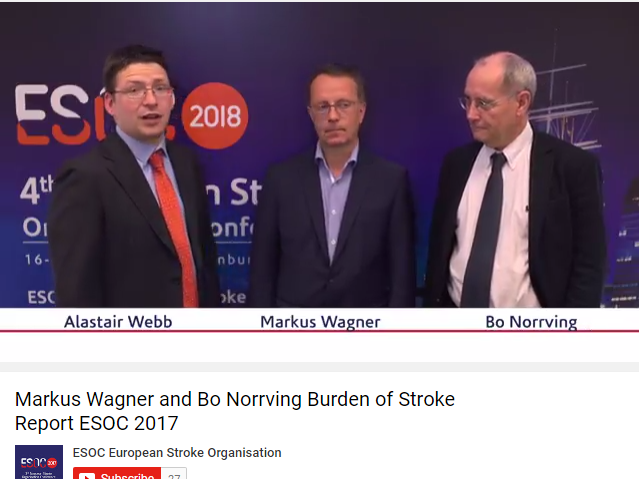
There is a need to improve stroke services in almost every part of Europe
Please see below the interview with Prof. Bo Norving and Markus Wagner, Vice President of SAFE, on the Burden of Stroke Report.

Please see below the interview with Prof. Bo Norving and Markus Wagner, Vice President of SAFE, on the Burden of Stroke Report.
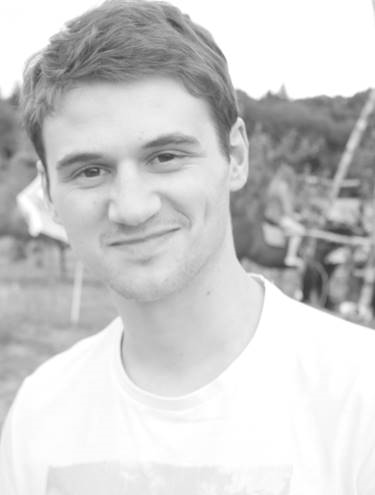
Written by Alison Turner
Louis Gustin is 26 years old, and when asked if he remembers what happened to him 2 years ago, he replies, “Yes, I remember perfectly.”
Louis, from the North East of France, was visiting Warsaw at the time, and after a day of strolling and hanging out, he was sitting at a cafe in the old city, chatting with two friends.
“And it was there I had my stroke. Suddenly, my eyes felt strange, mostly the right eye. It all seemed so weird. I saw green in my eye. I remember that I was looking at the two bartenders in front of me. And then, without warning, I could not speak.
They called an ambulance. The paramedic spoke to me in Polish, but I couldn’t even say, “Dzień dobry” (“Hello”). I said nothing. I had no idea what it was. A stroke, for me, that meant nothing. My grandmother had a stroke but she was 80 years old. No, I knew nothing.” (more…)

Prague, 16th May 2017– Stroke Alliance for Europe and European Stroke Organisation signed the Memorandum of Understanding in Prague at the first day of the ESOC 2017.
-This is an historic moment that unites both patient organisations and professionals in mutual endeavors to improve stroke care across Europe, said Jon Barrick, the President of SAFE.
In her video message, Valeria Caso, the President of ESO stressed out that this step was very important.
By joining forces, SAFE and ESO are now creating a strong alliance among patients, care-givers and healthcare professionals, including researchers.
ESO President elect Bart Van Der Warp gave a short speech at the event, on behalf of ESO.
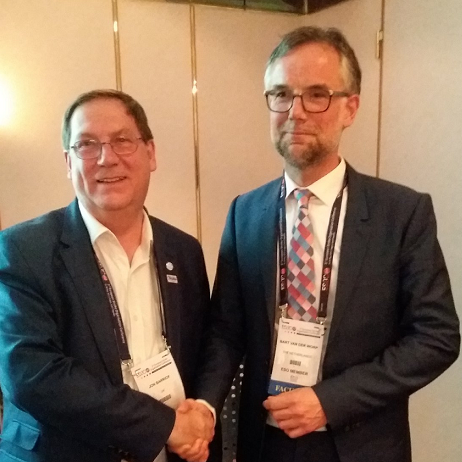
New partnership signed and sealed: SAFE and ESO fighting #stroke together. SAFE President Jon Barrick and ESO President elect Bart Van Der Warp
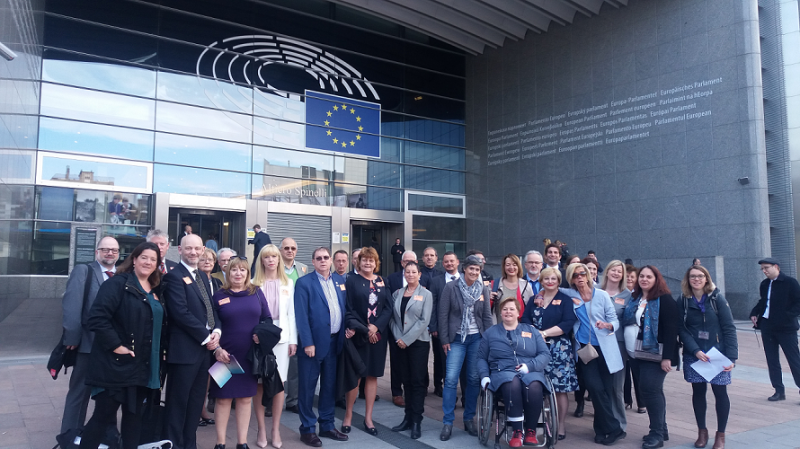
Following the successful launch of the Burden of Stroke Report in EU Parliament, SAFE SSOs continue with their other activities at national level.

Plans for May 2017 activities in SSOs
Apart from the Burden of Stroke related communication, each SSO is having national plans for raising awareness of stroke in May. Please click here to see the plan of their national activities.
You can download a Burden of Stroke press release in following languages:
The Burden of Stroke Report was made possible through educational grants from the following organisations

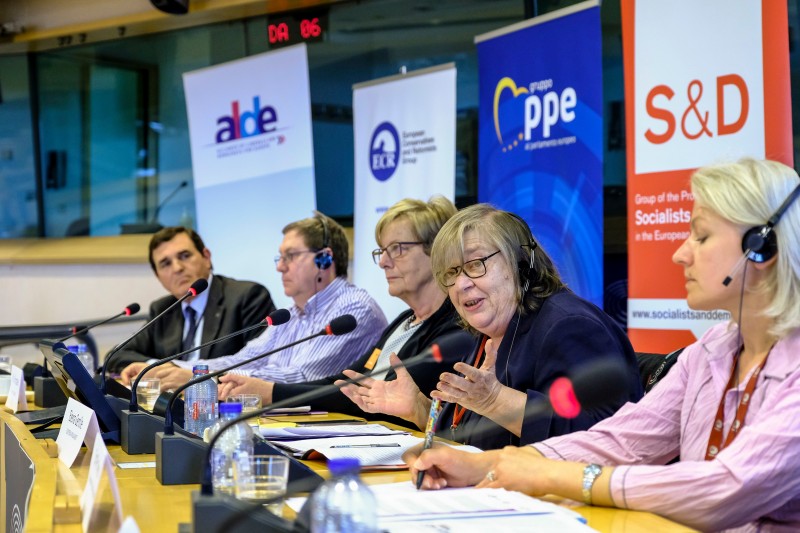
The Burden of Stroke in Europe research shows shocking disparities between and within countries along the entire stroke care pathway, with post-stroke support being neglected by all countries.
Brussels, May 11th 2017: Stroke Alliance for Europe is launching today a long-awaited, comprehensive overview of stroke care pathway across Europe. In front of dozens of members of EU Parliament, Jon Barrick, the President of SAFE and Valeria Caso, the President of European Stroke Organisation, jointly presented key findings from the research performed by King’s College London simultaneously in 35 European countries.

The event was co-hosted by four Members of the European Parliament, Elena Gentile (S&D), Marian Harkin (ALDE), Aldo Patriciello (EPP) and Helga Stevens (ECR).
-Even though the death rates from stroke in Europe have been falling over the last 20 years, stroke is a humanitarian catastrophe happening as we speak because more people are surviving stroke and more are being left with disabilities. The overall burden of stroke will rise dramatically in the next 20 years due to an ageing population. Decision-makers in Europe need to find better ways of fighting stroke and making life easier for stroke survivors and their families- said Barrick.
The projections in the Burden of Stroke report indicate that between 2015 and 2035, overall there will be a 34% increase in total number of stroke events in the European Union from 613,148 in 2015 to 819,771 in 2035.
European-wide comparisons of stroke and standardized stroke care are vital to help each country prevent stroke and provide better care and support for everyone affected by stroke.
SAFE is calling for each EU country to have national level collection and audit of stroke data. This supports the monitoring of resources and performance of systems along the whole pathway, which in turn will allow each country to learn from each other and speed up their improvement process. Many millions of people travel around Europe from country to country and it is frightening to think that they may receive excellent care in one country but in another they may die or suffer catastrophic long term disablement due to poor stroke care provision.
-The total cost of stroke in the EU of an estimated 45 billion euros in 2015 is set to rise, including both healthcare and non-healthcare costs. Projections show that the number of people living with stroke as a chronic condition will rise from 3,718,785 in 2015 to 4,631,050 in 2035, representing an increase of 25% or almost one million people across Europe. This is a huge wave coming our way and we better start to prepare for it- emphasized Barrick, adding that a joint action plan on stroke in Europe is a necessity so that the expected 34% increase in numbers of new stroke cases from 2017 until 2035 does not overwhelm national healthcare systems and those families touched by stroke.
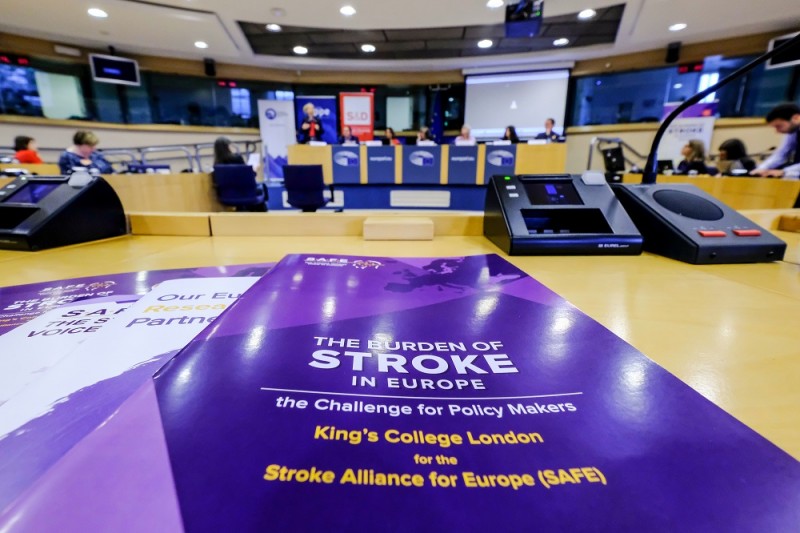
SAFE believes that the best way to fight stroke is for every EU member state to have a national stroke strategy actively supported and sponsored by the Government, that covers the whole stroke pathway, from awareness, prevention, diagnosis, treatment, transfer of care, specialist rehabilitation and reassessment, to long-term care and support, social integration and participation in community life and end-of-life care. Representatives from the wide range of professionals who support people with stroke, people who have had a stroke, carers and voluntary associations should all be involved in creating such strategies.
For more information about the Burden of Stroke Report, please visit
www.strokeeurope.eu
Sponsors of the Burden of Stroke Report:
